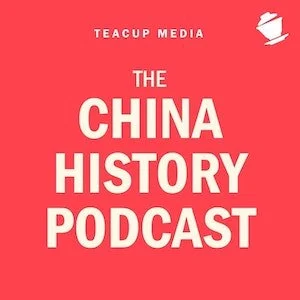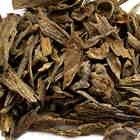Ep. 299 | The History of Chinese Alchemy (Part 1)
This episode is another listener request. In fact, Homer Lea's been requested regularly throughout the years. He's more of a footnote from history than actual history itself. Homer's story is kind of unique because of the stumbling blocks life threw his way. He didn't live long but in his short life he got to witness a lot and be a sort of "fly on the wall" to some of the great moments in Revolutionary Chinese history that we're all so familiar with. So let's go relive those years from 1908 to 1912 and the walk-on roles Homer Lea got to play as history unfolded.
Listen On Your Favorite Podcast Player
Terms in Episode
| Pinyin/Term | Chinese | English/Meaning |
|---|---|---|
| Gě Hóng | 葛洪 | 283-364(?) Chinese linguist, philosopher, physician, politician and alchemist. Writer of The Baopuzi |
| Lù Yǔ | 陆羽 | 733-804, Chinese tea master and writer. Wrote "The Classic of Tea" |
| Táng Dynasty | 唐朝 | Chinese dynasty that ran 618 to 907 AD with an interregnum for Wu Zetian's Zhou Dynasty that ran 690-705\ |
| Xīnjiāng | 新疆 | China's far northwest province |
| Qín | 秦朝 | First imperial dynasty of China, ran 221-206 BC |
| Hàn | 汉朝 | The Han Dynasty, ran 202 BC to 220 AD |
| Yì Jīng | 易经 | The Book of Changes, known also as the I Ching |
| Yīn | 阴 | The feminine of negative principle in nature, the moon, shade, dull, gloomy |
| Yáng | 阳 | The masculine or positive principle in nature, the sun, positive, male |
| Dào | 道 | Road, way, path, channel, way, method, doctrine, The Tao |
| Yellow Emperor | 黄帝 | A deity in Chinese folk religion, reigned (mythical) 2698-2598 BC |
| Jīn Dān | 金丹 | Golden Elixir, one of the many names for these alchemical elixirs of life |
| Dāndǐng | 丹鼎 | A three legged Ding cauldron that was used for mixing substances to produce elixirs |
| Dān | 丹 | Means the mineral cinnabar or a pellet or powder |
| wàidān | 外丹 | External Alchemy, mainly concerned with producing elixirs and prolonging life through the ingestion of alchemical substabces |
| Zōu Yǎn | 邹衍 | 305-240 BC, Chinese philosopher and spiritual writer best known as the representative thinker of the Yin and Yang School of philosophy |
| fāngshì | 方士 | a necromancer or alchemist |
| Xúnzǐ | 荀子 | 310-238 (?),Master Xun, known as Xun Kuang, Confucian philosopher |
| Hán Fēi | 韩非 | 280-233 BC (?),Legalist philosopher, writer of The Han Feizi |
| Lǐ Sī | 李斯 | 280-208 BC (?),Chinese politician, philospher and chancellor to Qin Shihuang during the Qin Dynasty. Also a major figure in Legalism |
| Jìxià Xué Gōng | 稷下学宫 | The Jìxià Academy, a scholarly academy during the Warring States Period located in Linzi, Qi State (Shandong) |
| Qí State | 齐国 | Warring States era politicalk entity located in present-day Shandong province. Lasted from the start of the Zhou in 1046 and was the last to fall to Qiun Shihuang in 221 BC |
| Shāndōng | 山东 | Coastal province in northern China |
| Sīmǎ Tán | 司马谈 | 165-110 BC (?),father of Sima Qian. Began work of The Record of the Grand Historian |
| Wǔ Xíng | 五行 | The Five Elements of Fire, Water, Wood, Metal, and Earth. A fivefold conceptual scheme that many traditional Chinese fields used to explain a wide array of phenomena, from cosmic cycles to the interaction between internal organs, and from the succession of political regimes to the properties of medicinal drugs. |
| Huáinánzǐ | 淮南子 | An ancient Chinese text that consists of a collection of essays that resulted from a series of scholarly debates held at the court of Liu An, Prince of Huainan, sometime before 139 BC. The Huainanzi blends Daoist, Confucianist, and Legalist concepts, including theories such as yin and yang and Wu Xing theories. |
| Pǔ-Ěrh tea | 普洱茶 | A category of tea that uses "fermented" tea leaves that only come from the southwest province of Yunnan |
| Qín Shǐhuáng | 秦始皇 | 259-210 BC, the first Chinese emperor, ruler of the Qin Dynasty |
| Xú Fú | 徐福 | Known as Jofuku in Japan, he was born in Qi State in 255 BC. According to legend Qin Shihuang sent him on two missions to the east to search out elixirs of life |
| Pénglái | 蓬莱 | Known as Mount Penglai, it was a legendary land of Chinese mythology where the gods and immortals dweled, thought to be in easternmost Shandong province or off the coast |
| Qīngdǎo | 青岛 | Beautiful port city on the eastern tip of Shandong province |
| Bù Sǐ zhī Shù | 不死之树 | Tree of Immortality |
| Láoshān | 崂山 | A mountain located in eastern Shandong near the East China Sea, considered to be one of the "Cradles of Daoism" |
| Bùsǐzhīyào | 不死之药 | Another name for an elixir of immortality |
| Huán Kuān | 桓宽 | Author of the ancient work “On Salt and Iron” - Yán Tiě Lùn |
| Hàn Wǔdì | 汉武帝 | Western Han dynasty emperor who reigned 141 to 87 BC |
| Liú Chè | 刘彻 | Han Wudi's personal name |
| Yíng Zhèng | 嬴政 | Qin Shihuang's personal name |
| Lǐ Shǎojūn | 李少君 | Lived during reign of Han Wudi, (133 BCE) was a fangshi and the earliest known Chinese alchemist. In the early history of Chinese waidan (External Alchemy),Li is the only fangshi whose role is documented by both historical (for instance, Shiji) and alchemical (Baopuzi) sources. |
| zào | 竈 | Also written 灶, an oven |
| Tiān Dì Rén | 天地人 | Heaven Earth and Humanity |
| Zhōu Dynasty | 周朝 | Ancient Bronze Age dynasty that ran 1046-256 BC |
| Wèi Bóyáng | 魏伯阳 | A notable semi-legendary Chinese writer and alchemist of the Eastern Han Dynasty as well as the reputed author of The Kinship of the Three, and is noted as the first person to have documented the chemical composition of gunpowder in 142 AD. The "Cantong Qi" was probably written in stages from the Han dynasty onward until it approached its current form before 450 AD. |
| Luán Dà | 栾大 | Another Fangshi who was in the employ of Han Wudi who failed in his task to find the elixir of life (and paid for it dearly) |
| Liú Xiàng | 刘向 | 77-6 BC, Western Han era polymath, astronomer, historian, poet, politician, librarian, and writer. Well known for his bibliographic work in cataloging and editing the Han imperial library. |
| Liú Xīn | 刘歆 | 50-23 BC, son of Liu Xiang and no less accomplished in astronomy, math, history. He finished the job started by his father in organizing the Han Imperial Library |
| Hàn Emperor Xuān | 汉宣帝 | Emperor Xuan of Han, reigned 74 to 48 BC |
| Mèng Mǔ Sān Qiān | 孟母三迁 | Mengzi's Mother Moves Three Times, a famous story and Chinese idiom that tells about Mengzi's saintly mother who moved three times until she found the perfect place to raise her son |

















his all took place in the final moments of the Warlord Era, right after the Central Plains War. This act perpetrated by warlord Sun Dianying 孙殿英 epitomized the venality of these men.